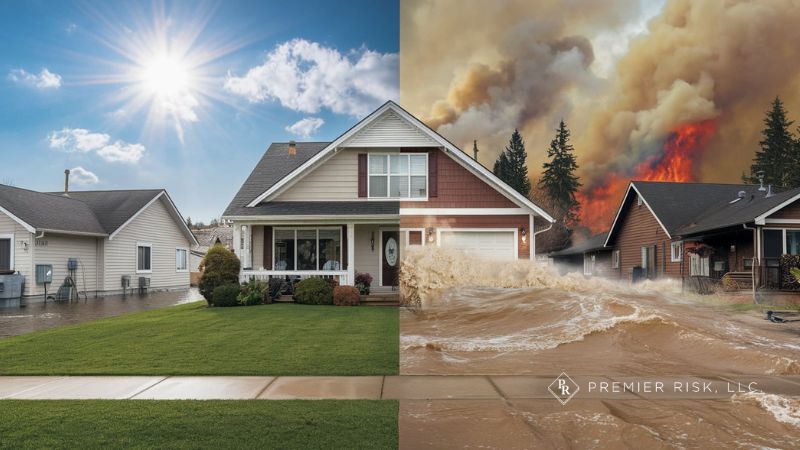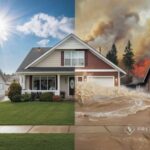As climate change accelerates, its effects are profoundly reshaping the landscape of property insurance. For homeowners and property owners, understanding these changes is crucial not only for financial planning but also for ensuring adequate protection against increasingly severe weather events. This blog explores how climate change is influencing insurance policies and what property owners can expect in the evolving insurance market.
Increased Frequency and Severity of Natural Disasters
Climate change has led to a noticeable increase in the frequency and intensity of natural disasters such as hurricanes, floods, and wildfires. According to Swiss Re, the world’s largest reinsurer, property damage costs from natural disasters in the U.S. could rise by over 60% by 2040 due to climate change.
This trend has resulted in significantly higher claims costs for insurers, compelling them to raise premiums across the board. In high-risk areas like Florida and Louisiana, homeowners have seen premium increases of up to 35% in recent years.
Shifts in Risk Assessment and Coverage Availability
The traditional methods of risk assessment used by insurers are becoming less reliable as weather patterns become more erratic. Insurers are increasingly forced to adjust their risk models to account for areas that were once considered low-risk but are now experiencing higher probabilities of extreme weather events. This shift has led some insurers to withdraw from high-risk markets entirely, leaving homeowners with limited options for coverage.
For instance, major insurers have stopped issuing new policies in wildfire-prone areas of California, reflecting a broader trend of companies pulling back from regions deemed too risky.
Higher Premiums and Deductibles
As insurers grapple with rising claims costs and increased risks, many are raising not just premiums but also deductibles. This means that homeowners must pay more out-of-pocket before their insurance kicks in, adding financial strain during already challenging times.
With average home insurance premiums rising by approximately 11% last year alone, many property owners are feeling the pinch as they attempt to secure adequate coverage for their homes.
Stricter Underwriting Criteria
In response to the changing risk landscape, insurers are implementing stricter underwriting criteria. Homeowners in high-risk areas may now face more rigorous inspections and requirements to qualify for coverage. For example, properties located in wildfire-prone regions might need to adhere to specific fire-resistant building codes or demonstrate defensible space around the home.
These measures aim to mitigate potential losses but can make it increasingly difficult for homeowners to obtain necessary insurance.
Exclusions and Specialized Coverage
Another significant change is the introduction of exclusions for certain types of damage in standard homeowners’ policies. Flooding and wildfire damage are often excluded from basic coverage in high-risk areas, requiring homeowners to purchase separate policies that can be prohibitively expensive.
As a result, property owners must navigate a more complex insurance landscape where understanding policy details is essential for adequate protection.
The Role of Insurers in Promoting Resilience
Despite these challenges, there is an opportunity for insurers to play a vital role in promoting resilience against climate-related risks. By offering incentives for homeowners to invest in hazard-resistant improvements—such as reinforcing roofs or installing storm shutters—insurers can help reduce potential claims while also fostering a culture of preparedness among policyholders.
Additionally, partnerships between insurers and government agencies can lead to initiatives aimed at improving building codes and disaster readiness.
Also Read: Home Insurance-Friendly Ways to Remodel Your Property
Navigating Climate Challenges with Premier Risk: Protecting Your Property and Future
The impact of climate change on property insurance is profound and multifaceted. As natural disasters become more frequent and severe, property owners must adapt to rising premiums, stricter underwriting practices, and potential coverage gaps. Staying informed about these changes is crucial for homeowners seeking to protect their investments and ensure financial stability in an uncertain future.
At Premier Risk, LLC, we are committed to helping our clients navigate this evolving landscape by providing tailored insurance solutions that meet their unique needs amidst these challenges. Contact us today.










